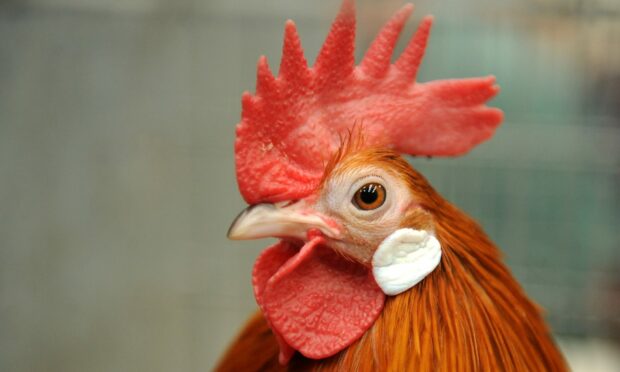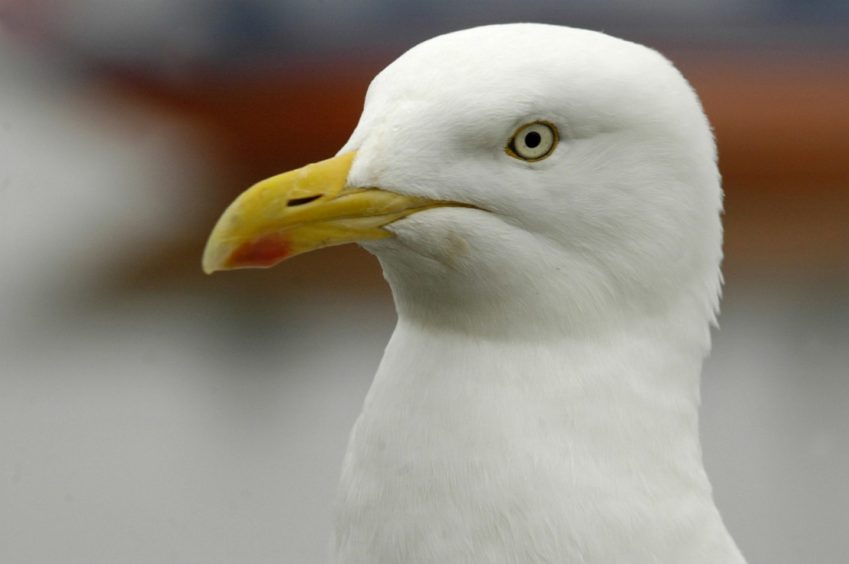The Chief Veterinary officer has called on public vigilance after a flock of 35 birds with avian flu was detected on an Aberdeenshire farm.
Chief veterinary officer Sheila Voas said reports of dead birds should be made immediately to stop the spread of bird flu.
The so-called “backyard” flock in Inverurie was identified over the weekend and the birds are in the process of being culled.
Scotland’s chief veterinary officer Sheila Voas said: “We can confirm an outbreak of highly pathogenic avian influenza (HPAI) H5N1 in a mixed flock of around 35 birds at a premises near Inverurie, Aberdeenshire.
“Work to humanely cull the birds at the premises began yesterday.
“Due to its non-commercial nature, this premises was deemed a special category premises. As a result of this, and based on a veterinary risk assessment, no new disease control zones were applied.”
Bird keepers whose premises become infected are compensated when birds are humanely euthanised by the Animal and Plant Health Agency.
She continued: “Public health advice is that the risk to human health from the virus is very low and food standards bodies advise that avian influenzas pose a very low food safety risk for UK consumers, and it does not affect the consumption of poultry products including eggs.
“We have already made clear that all bird keepers – whether major businesses or small keepers with just a few birds – must ensure that their biosecurity is up to scratch to protect their birds from disease and prevent any contact between their birds and wild birds.”
Public urged to report dead birds
Bird owners with concerns around avian flu have been urged to seek advice immediately, while the public has been asked to remain vigilant and report any sightings of dead birds.
Sheila Voas continued: “Any dead wild swans, geese, ducks or birds of prey, or five or more dead wild birds of other species, including gulls, in the same location at the same time, should be reported to the GB-wide telephone helpline run by Defra.”
People who find dead birds are told not to pick them up, under any circumstances.
Rural affairs secretary Mairi Gougeon said: “We know that avian influenza is here in Scotland.
“In order to try to keep their birds safe and stop the spread of the disease, producers and bird keepers are reminded to comply with the order which came in to effect on November 29, 2021, to enhance biosecurity practices, including to house birds, and to ensure their birds are kept separate from wild birds.”
Aberdeenshire Council’s trading standards animal health team reminded poultry keepers to house or net all poultry and captive birds to keep them separate from wild birds.
A spokesman said: “It is vital that everyone who keeps birds, whether a few in a back garden or thousands on a commercial unit is vigilant and adheres to the rules.”
Low risk of transfer to humans
Scottish SPCA chief superintendent, Mike Flynn, said there was a very low risk of bird flu transmitting to humans.
He said: “We would recommend bird owners to thoroughly clean housing and equipment to reduce the risk of spreading the virus.
“If you are bringing a new bird in to your flock they should first be quarantined before being introduced to the group.
“If you see an injured or sick bird please do not approach it and contact our helpline on 03000 999 999. If you find a deceased bird, again do not approach it and contact DEFRA.”
Food safety advice for cooking poultry and eggs remains unchanged. Advice on safe cooking of eggs and poultry can be found here.
Register the birds
Bird flu is a notifiable animal disease. If you suspect any type of bird flu you must report it immediately. Failure to do so is an offence.
In Great Britain, bird owners are legally required to register birds on the GB Poultry Register if you keep more than 50 birds.
Keepers with less than 50 birds are strongly encouraged to register. It is also a legal requirement to notify any significant changes in the average number of birds kept.
Avian influenza should be reported immediately by calling the Defra Rural Services Helpline on 03000 200 301.

